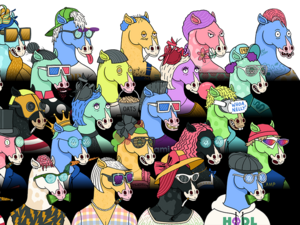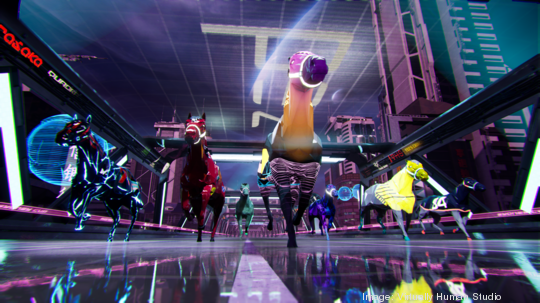
Chris Laurent was getting Chinese takeout when he saw a poster advertising the breeding fee for a thoroughbred — $20,000.
At the time, Laurent was living in the Hunter Valley region of Australia while working for a large sports betting company. He had been doing market research in the blockchain space and had previously came across a non-fungible token (NFT) project called Crypto Kitties.
The combination of cute cartoon kittens and the barrier to entry into the horse racing industry sparked the idea that would take shape as Zed Run, a digital horse racing game in which players can buy, breed and race NFT horses.
Josh and Melanie Rosenthal, co-founders and partners at 6ixth Event and Narwhal Ventures, invested early. The Louisville couple, which exited RowdMap in 2017, have been active investors in the crypto and web3 space for years.
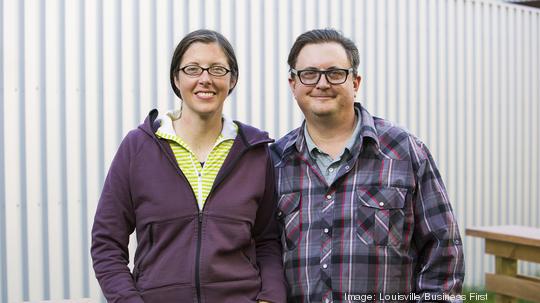
In a recent interview, Josh Rosenthal told me they own a few Genesis block horses — the first generation of Zed's NFTs — and they also invested in the company as an equity investor. Zed is the flagship product from Virtually Human Studios (VHS), which employs 200 people worldwide.
"Zed was interesting because instead of just an NFT, which is a picture or you might get some kind of perk with it, [the company's founders] were very early on this idea of gaming basically through web3," Rosenthal said. "Instead of spending all your money on video games, you actually own the thing that you're playing with and you can generate money from it."
VHS, based in Australia, has been growing exponentially since its $20 million Series A raise last year, said Chris Ebeling, a co-founder along with Laurent, and creative director. It's grown Zed's platform to more than 50,000 users and hosts 3,000 races a day, on average.
That hasn't come without growing pains, Ebeling continued. The company was founded in 2018, long before blockchain technologies like NFTs started trickling their way into the mainstream.
"It's like walking down a dark corridor with a candle light, right? You don't really know what's next... Is it a left or right turn? Or is it just straight ahead?" he said. "There's a saying I love, which is, 'Fail often and fail fast,' because experience is your best teacher. When you're doing something which has no framework, you've just got to be willing to risk to innovate."
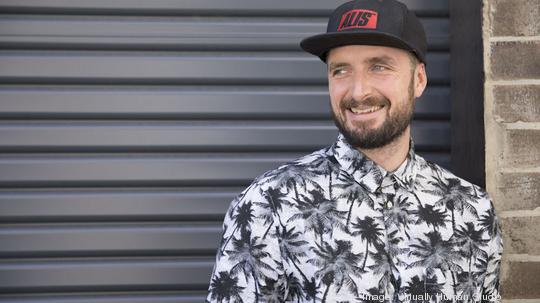
While there's a learning curve for those building the technology, there's also one for those using it — especially those new to crypto assets like Ethereum. As a result, Ebeling said VHS is currently focused on onboarding, making it as easy as possible for users to buy and race a horse.
"Horse racing is an expensive, exclusive sport," Ebeling said. "We wanted to democratize that and give everyone a feeling of ownership, the feeling of managing a stable, breeding two horses and creating a championship horse."
You can get a Zed horse for pretty cheap — I saw one on sale for $10 — but like other rare or exclusive NFTs, some are priced at more than $200,000, based on Ethereum's current market value of nearly $2,000.
Ebeling said taking something from the real world and bringing it into the digital space gives the company an opportunity to enhance the experience for players and users, while offering better returns than real-world horse racing.
"We're still in beta — we're still walking down the corridor by candlelight — but we know where we want to go. We've got a lot of data now that can drive us and we're making very conscientious decisions to make the next step and to move the needle towards our company's objectives and purpose."
While NFTs have become more widely-known as digital art, Rosenthal said he believes NFTs can serve as assets in games and metaverses and as opportunities to earn a living through traditional skills. He referenced Axie Infinity, another play-and-earn video game, and Socios, a company that creates exclusive "fan tokens" for sports teams.
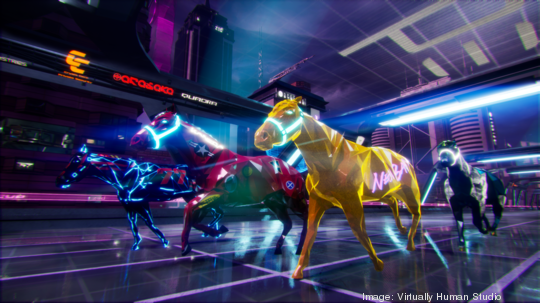
"It really blends what's real and what's not real," Josh said. "That's kind of the idea of the metaverse — we see it as being connected to the real world. We see the metaverse empowering the real world rather than replacing it.
"These NFTs or digital artifacts that you own, in our vision they serve as these two-way doorways which allow you to work in the real world and enjoy the fruits in the synthetic world, or work in the synthetic world — like breeding horses — and enjoy the fruits in the real world and by a real Lambo [Lamborghini]. We know people have done both, so it was a very interesting early experiment and Zed just executed it really well."


